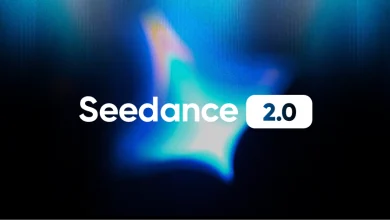
Property owners now get better emergency alerts about security and HVAC problems thanks to AI. Modern locksmith companies have grown by a lot. They now use AI-powered systems to give custom protection that matches specific needs. On top of that, smart alert systems are changing the HVAC industry in big ways. Buildings with advanced automation can reduce energy consumption by 20-40% compared to regular controls.
Smart microservices help energy providers, consumers, and property managers get instant alerts when something goes wrong. This up-to-the-minute monitoring works much better than old alert methods. People often ask how to check their emergency alerts or which examples apply to them. AI-powered systems now handle these questions automatically. AI emergency alerts in locksmith and HVAC services create faster, more responsive, and personalized security and comfort solutions for properties in Florida and beyond.
The Problem with Traditional Emergency Alerts
Critical moments expose how traditional emergency alert systems often fail to deliver. Facility managers receive an average of 12.5 alarms daily, and over 50% deal with up to 30 alarms each day. This constant barrage creates “alarm fatigue,” which buries important notifications under less urgent ones.
Poor alarm management drains £15.88 billion annually from global industry production. The human cost proves even more devastating – 566 Americans lost their lives due to missed alarms between 2005-2008.
The last decade’s natural disasters in the United States revealed a pattern where local emergency officials either delayed alerts or failed to send them completely. The 2023 Maui wildfires highlighted this weakness when residents missed mobile alerts because cell networks collapsed.
The 2023 Halifax flash floods claimed preventable lives after emergency alerts took over eight hours to reach people.
Traditional systems struggle with unreliable infrastructure, incomplete contact databases, and security gaps. Security flaws became evident in 2013 when hackers infiltrated Emergency Alert Systems across multiple states and broadcast fake zombie warnings.
These limitations show why AI emergency alerts and modern notification systems have become vital for emergency response that works.
How AI Is Transforming Emergency Alert Systems
image source: Klíma Szerelő Budapest
AI has revolutionized emergency systems by making them faster and more accurate than traditional methods. Smart dispatch systems can now find the closest locksmith and prioritize emergency calls, which cuts down response times for locked-out customers. AI also helps security systems tell the difference between real threats and harmless activities.
These systems deliver impressive results. AI surveillance has reduced false positives by over 95% while catching actual threats. The XGBoost model shows 96.1% accuracy as it sorts medical, vehicle, and home device emergencies.
Florida now guides the way in AI emergency alerts. The state has rolled out AI-based public safety messaging that works through radio stations and the BEACON app to share critical alerts. This setup will give a reliable 24/7 broadcast feed during emergencies.
AI does more than send alerts. It can predict when HVAC systems might fail before problems happen. This smart approach cuts maintenance costs and boosts system reliability by studying past performance data.
AI makes emergency responses faster and smarter by customizing messages based on where you are, your risk level, and your specific situation. The right people get the information they need at the right time.
The Future of Intelligent Alerts in Locksmith and HVAC Services
image source: Deblocari Usi Oradea
Smart alert systems are entering a new phase that tackles false alarm reduction—a crucial improvement since 98% of critical alarms turn out to be false. Modern systems with machine learning capabilities can cut down false alarms by 72% and identify problems in properties of all sizes.
Property owners will soon have access to smarter verification systems. These systems combine audio and video confirmation before sending alerts, which will eliminate unnecessary emergency responses. The technology can tell the difference between harmless activities and real threats, which stops people from ignoring alarms due to frequent false triggers.
Future AI systems will revolutionize HVAC operations by:
- Using weather and usage patterns to forecast maintenance needs
- Deploying AI voice assistants to handle service calls
- Using IoT-connected units to spot issues
Alert systems will go beyond simple notifications to offer emergency updates through text, email, WhatsApp, voice messages, and dedicated apps. This multi-channel strategy will give users critical updates whatever their preferred way to communicate.
Cloud dashboards will display live sensor data and help property managers make quick decisions. These systems will evolve from reactive emergency tools into smart platforms that spot and prevent issues before they happen.
Conclusion
AI’s integration into emergency alert systems has created a major breakthrough for locksmith and HVAC services. Property owners no longer have to deal with alarm fatigue and unreliable notifications. Smart systems now filter out false positives and make sure real emergencies get immediate attention. These improvements tackle the main problems of old systems, especially the 98% false alarm rate that made them unreliable and ineffective.
In spite of that, the benefits go far beyond better notifications. AI-powered systems’ predictive abilities have changed how property owners interact with emergency services. These intelligent systems can spot potential failures before they happen, which marks a fundamental change from reactive to proactive management. Florida shows these benefits in action through its AI-based public safety messaging across the state.
The system’s personalization features make sure alerts reach the right people with relevant information. This targeted approach eliminates information overload that used to cause missed alerts and slow responses. Better accuracy, speed, and personalization create a more dependable safety net for properties and their occupants.
The future looks promising with the rise of dual verification methods and new communication channels that will make these systems even stronger. Property managers can use cloud-based dashboards to see critical data and make quick decisions. This move from reactive emergency response to proactive prevention shows more than just technical progress – it’s a complete transformation in protecting homes, businesses, and essential systems.
FAQs
1. How does AI improve emergency alert systems for locksmith and HVAC services?
AI enhances emergency alert systems by filtering out false alarms, prioritizing genuine threats, and enabling predictive maintenance. This results in faster response times, reduced costs, and improved overall system reliability.
2. What are the main problems with traditional emergency alert systems?
Traditional systems often suffer from alarm fatigue due to excessive notifications, outdated infrastructure, incomplete contact data, and security vulnerabilities. These issues can lead to missed alerts and delayed responses during critical situations.
3. How does AI personalize emergency alerts?
AI tailors emergency messages based on factors such as location, risk level, and individual circumstances. This ensures that the right people receive relevant information exactly when needed, making emergency responses both faster and more effective.
4. What future developments can we expect in AI-powered emergency alert systems?
Future systems will likely incorporate dual verification methods using audio and video confirmation, AI voice assistants for diagnostics, and multi-channel communication capabilities. These advancements will further reduce false alarms and improve overall system efficiency.
5. How are AI emergency alerts being implemented in Florida?
Florida has become the first state to deploy AI-based public safety messaging technology that uses radio stations and a mobile app called BEACON to broadcast important alerts. This system ensures 24/7 broadcast feeds during emergencies, enhancing public safety communication.







